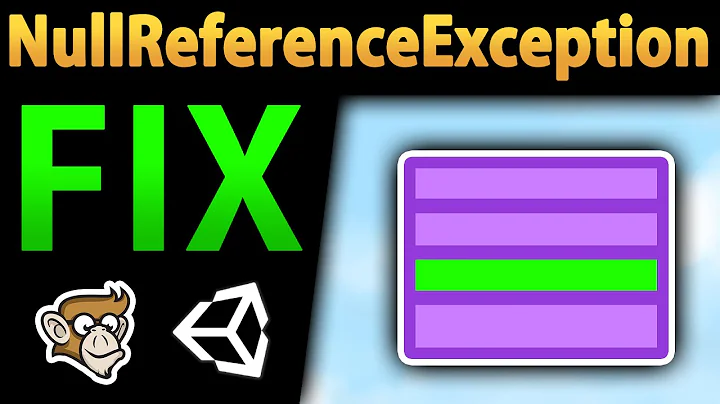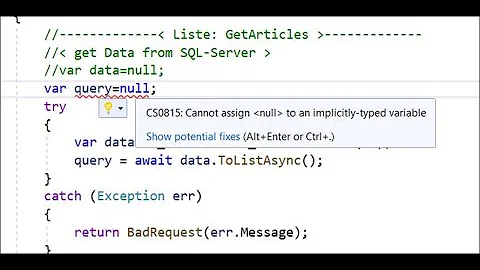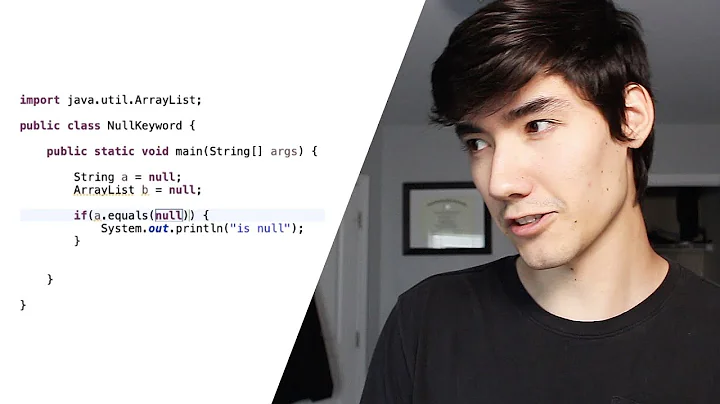assign variable only if it is null
14,985
The shortest way I can think of is indeed using the elvis operator:
value = value ?: newValue
If you do this often, an alternative is to use a delegated property, which only stores the value if its null:
class Once<T> {
private var value: T? = null
operator fun getValue(thisRef: Any?, property: KProperty<*>): T? {
return value
}
operator fun setValue(thisRef: Any?, property: KProperty<*>, value: T?) {
this.value = this.value ?: value
}
}
You can now create a property that uses this like so:
var value by Once<String>()
fun main(args: Array<String>) {
println(value) // 'null'
value = "1"
println(value) // '1'
value = "2"
println(value) // '1'
}
Note that this is not thread-safe and does not allow setting back to null. Also, this does evaluate the new expression while the simple elvis operator version might not.
Related videos on Youtube
Author by
Luiz E.
Updated on September 14, 2022Comments
-
 Luiz E. over 1 year
Luiz E. over 1 yearon Ruby one have something like this:
@var ||= 'value'basically, it means that
@varwill be assigned'value'only if@varis not assigned yet (e.g. if@varisnil)I'm looking for the same on Kotlin, but so far, the closest thing would be the elvis operator. Is there something like that and I missed the documentation?
-
nhaarman almost 7 yearsAre you looking for something like lazy?
-
nhaarman almost 7 yearsI guess
value = value ?: newValueis indeed the shortest way.
-
-
Ruckus T-Boom almost 7 yearsYou probably want
class Once<T: Any>. Otherwise you could usevar value by Once<String?>which would be confusing. -
nhaarman almost 7 years@RuckusT-Boom Why is that? It accepts nullable types now, but in usage there's no difference, right?
-
Ruckus T-Boom almost 7 yearsI guess it wouldn't make any difference. I was thinking in terms of the
NotNulldelegate for some reason. Couldn't tell you why.








